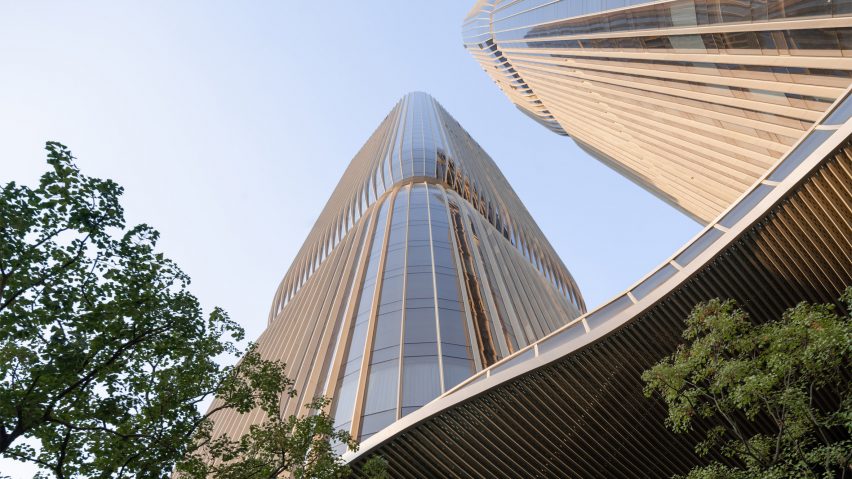
Aedas lines twin skyscrapers with bronze fins in Hangzhou
Architecture studio Aedas has designed a pair of round-edged, 150-metres-high skyscrapers, named One Future, in Hangzhou, China.
Informed by lotus plants in the nearby West Lake, One Future features facades of aluminium and glass panels lined with bronze fins that taper at the building's base.
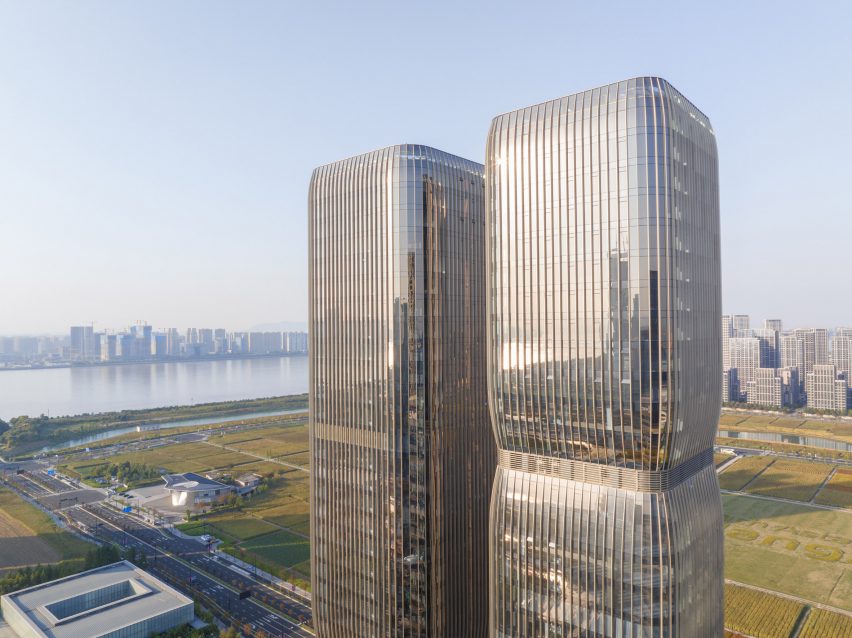
"The formal concept of these twin towers is from lotus roots which is a very popular plantation and of good metaphorical meaning in local Xiao Shan culture," Aedas executive director Wei Li and global design principal Ken Wai told Dezeen.
"Architecturally speaking, we were seeking for a simple and subtle form that can provide efficient floor layouts, while building up strong connections to the rich local culture."
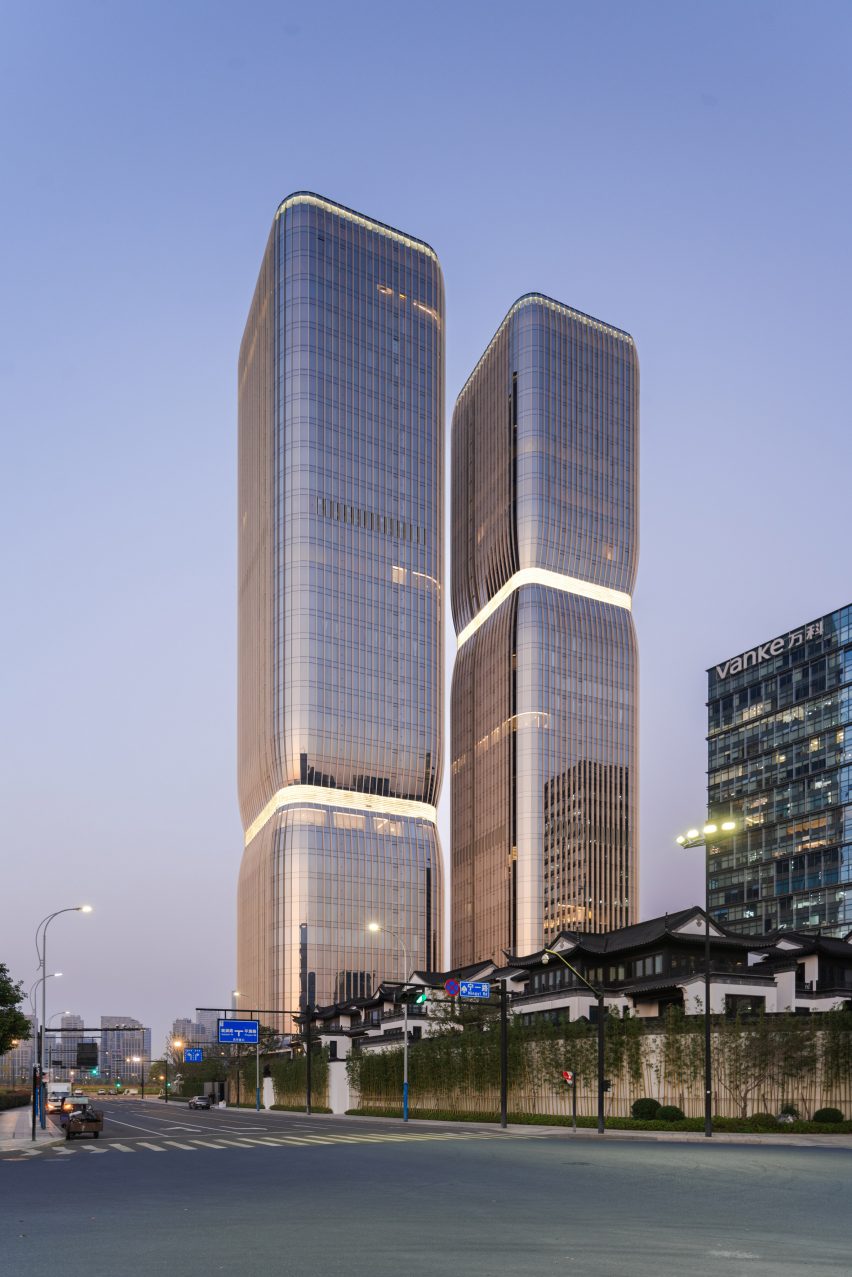
On each tower the facades curve inwards to mark a refuge floor, which offer a safe space for occupants in the case of an emergency, squeezing the two structures at different heights to break up their rectilinear form.
At the base of the towers, a curving canopy extends from the facades to form a sheltered entryway.
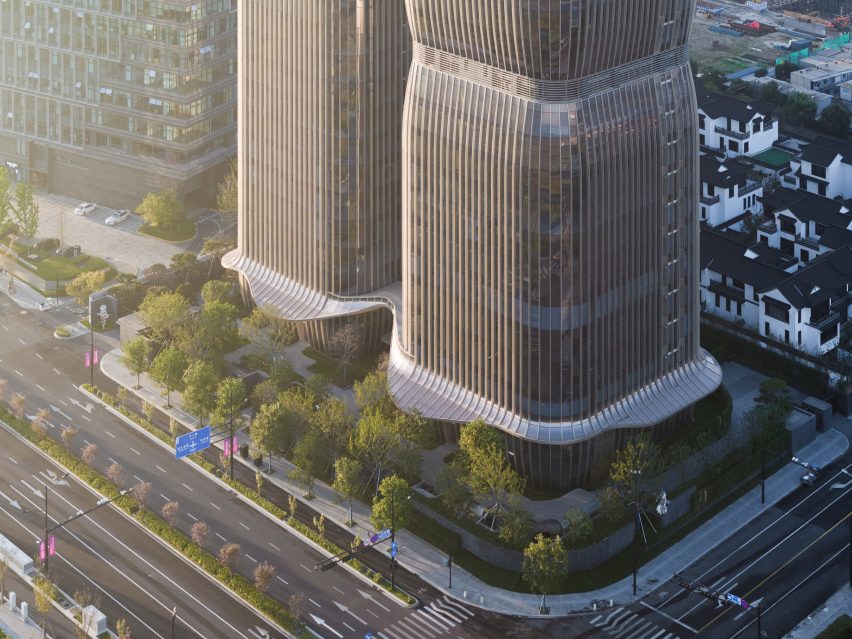
A paved, ground floor courtyard lined with trees wraps around the towers and is hidden from the adjacent street and main roads by a perimeter wall and hedges.
Entrances to the buildings were punctured into the curving facade, outlined by bronze frames which match the fins.
"The site is very small so the overarching site strategy is to gain as much open landscape area as possible," Li and Wei said.
"We first dropped the idea of a chunky podium and minimized the car circulation, then the bottom of the towers tapers inward to release more ground area."
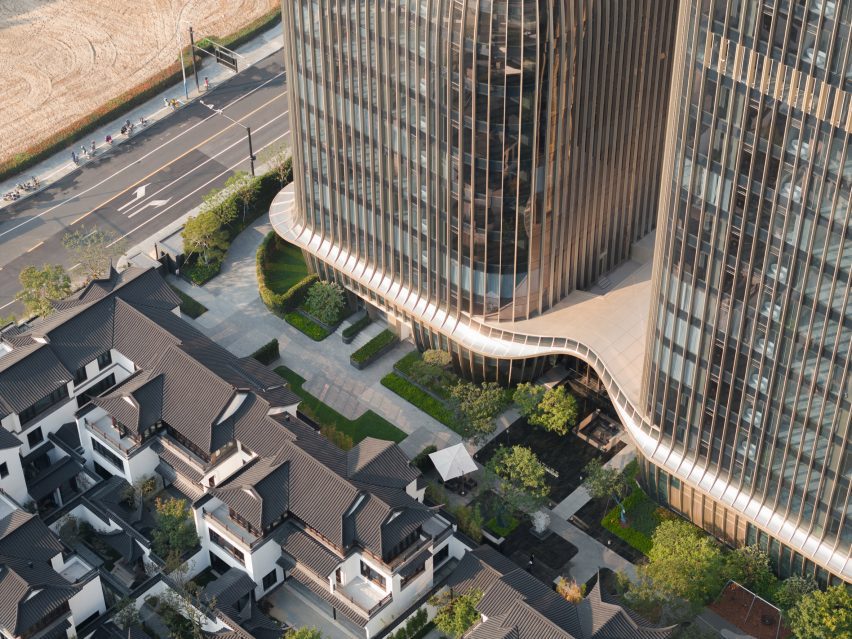
Spread across 33 stories, the 63,500-square-metre interior contains both office and residential spaces – accessed via individual elevators to define the two programmes.
According to the studio, the project is a response to increased demand for flexible live/work spaces for young entrepreneurs in the city – therefore offering tenants a choice between work or residential unit layouts.
"[Young entrepreneurs] are not interested in standard Class A offices like bankers, but rather a place can flexibly live and work in, so our design came from such idea," Li and Wei explained.
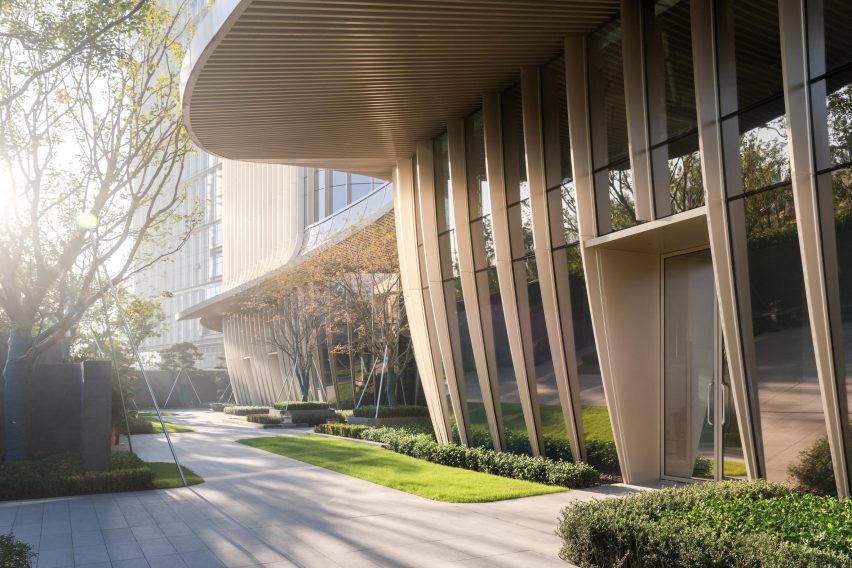
Within the buildings, the studio optimised useable space on the limited plot by minimising elevator zones within the architectural cores.
Other projects recently completed by Aedas include an arched skyscraper resembling local "auspicious stones" and a twisting skyscraper informed by the shape of the northern lights.
The photography is by DONG Image.
Project credits:
Client: Hangzhou Jumen Real Estate Co
Design and project architect: Aedas
Design directors: Wei Li (executive director), Ken Wai (global design principal)